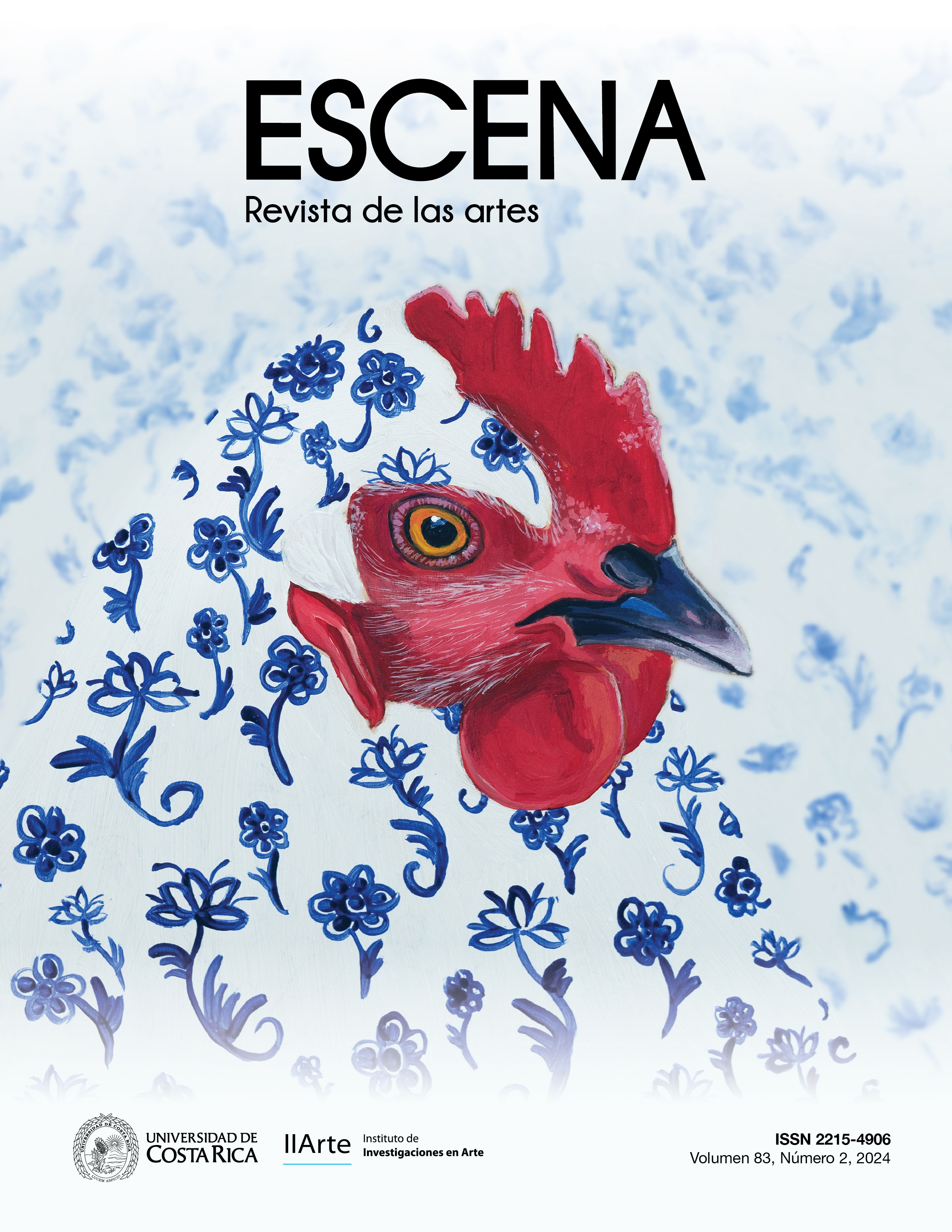Abstract
Introduction: This article presents an analytical interdisciplinary approach to the educational and artistic practices. Objective: It aims to observe the ontological relationships that can be displayed between the fields of education and arts, considering their critical and emancipatory potential. Methods: Taking the contributions of Jacques Rancière as a central reference, this study creates theoretical shifts to enable the intersection of the figures of the teacher and the artist, as well as those of the student and the spectator. From this framework, different positions arise regarding the educational and artistic practices, which are interpreted from the Lacanian formulation of the discourse. Results: The category of cognitive disruption is proposed as an epistemological notion, political exercise and emancipatory orientation that both fields of arts and education can implement to promote critical subjectivities and collectivities. Conclusions: In light of these intersections, estrangement emerges as a fundamental process triggered by the artistic and educational experiences.
References
Alatriste, J., Bernal, E., & Encastin, M. (2010). El arte como posible conocimiento. Espacios Públicos, 13(29), 158-174. http://www.redalyc.org/articulo.oa?id=67616330010
Badiou, A. (2013). La filosofía y el acontecimiento. Amorrortu.
Barthes, R. (2002). El susurro del lenguaje. Más allá del lenguaje y la escritura. Paidós.
Benjamin, W. (2008). Tesis sobre la historia y otros fragmentos. Itaca-UACM.
Brea, J. L. (2014). El cristal se venga. Textos, artículos e iluminaciones de José Luis Brea. Fundación Jumex.
Camnitzer, L. (2012). Arte, Estado y no he estado. Casa Editorial HUM.
Camnitzer, L. (2017, 20 de enero). El arte como forma de conocimiento [Sesión de conferencia]. Conferencia de Luis Camnitzer. Facultad de Bellas Artes, Universidad de Málaga, Málaga, España. https://core.ac.uk/download/pdf/75996641.pdf
Didi-Huberman, G. (2008). Cuando las imágenes toman posición. Antonio Machado Editores.
Freire, P. (2005). Pedagogía del oprimido. Siglo XXI Editores.
Freire, P. (2012). Pedagogía de la autonomía. Saberes necesarios para la práctica educativa. Siglo XXI Editores.
Greco, M. B. (2018). Subjetividades: El sujeto transparente de Byung-Chul Han. Aproximaciones críticas desde el sujeto dividido. En L. Espinoza, M. Greco, C. Ruiz del Ferrier, & S. Sferco. Por qué (no) leer a Byung-Chul Han (pp. 79-97). UBU Ediciones.
Lacan, J. (2008). Seminario XVII. El reverso del psicoanálisis. Paidós.
Lutereau, L. (2010). ¿Una estética lacaniana? La estética de Lacan o una estética con Lacan. Ramona. Revista de artes visuales, (98), 20-28. http://70.32.114.117/gsdl/collect/revista/index/assoc/HASH0109/50b7b863.dir/r98_20nota.pdf
La Sociètè Anonyme. (2006). Redefinición de las prácticas artísticas, s.21 (LSA47). Ramona. Revista de artes visuales, (7), 42-50. http://70.32.114.117/gsdl/collect/revista/index/assoc/HASHd947/d1ff539b.dir/r66_10nota.pdf
Peskin, L. (2004). El objeto a. Revista Psicoanálisis: ayer y hoy, (2). https://www.elpsicoanalisis.org.ar/old/numero2/objetoa2.htm
Rancière, J. (2007). El maestro ignorante. Cinco lecciones sobre emancipación intelectual. Libros del Zorzal.
Rancière, J. (2009). El reparto de lo sensible. Política y estética. LOM Ediciones.
Rancière, J. (2011). El espectador emancipado. Manantial.
Sepúlveda, T., & Bustos, G. (2017). Residencias de arte contemporáneo social Summer Camp: Villa Alegre, Chile. Curatoría Forense.
Sienra, S. (2015). Complicidades e inconsistencias entre el arte y la política: hacia una estética de lo invisible. Revista Materia Artística, 1(1), 60-85. https://rephip.unr.edu.ar/server/api/core/bitstreams/fc5045c3-62c4-409e-a450-84408e97cfe7/content
Tanke, J. (2010). Why Ranciére Now? Journal of Aesthetic Education, 44(2), 1-17. https://doi.org/10.5406/jaesteduc.44.2.0001
Žižek, S. (s. f.). Jacques Lacan’s Four Discourses. Lacan.com. https://www.lacan.com/zizfour.htm
##plugins.facebook.comentarios##

This work is licensed under a Creative Commons Attribution-NonCommercial-NoDerivatives 4.0 International License.
Copyright (c) 2024 Sofía Sienra Chaves



